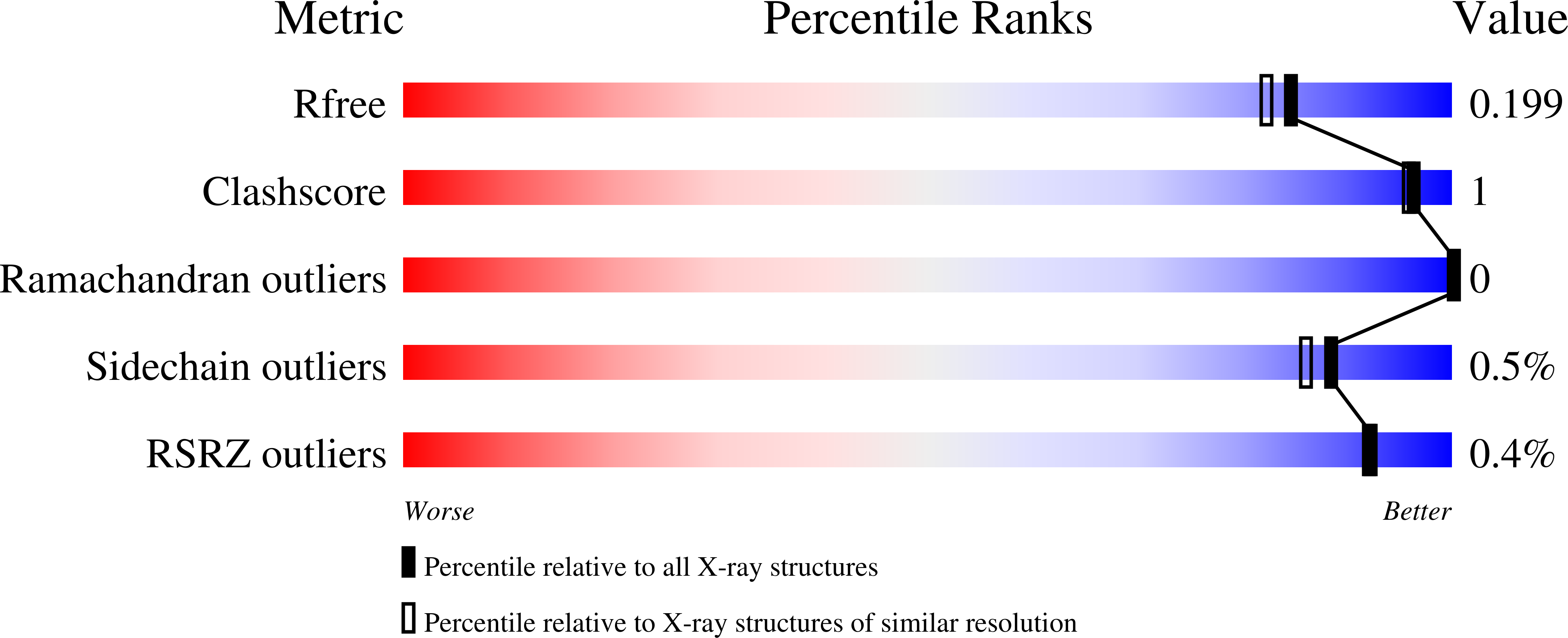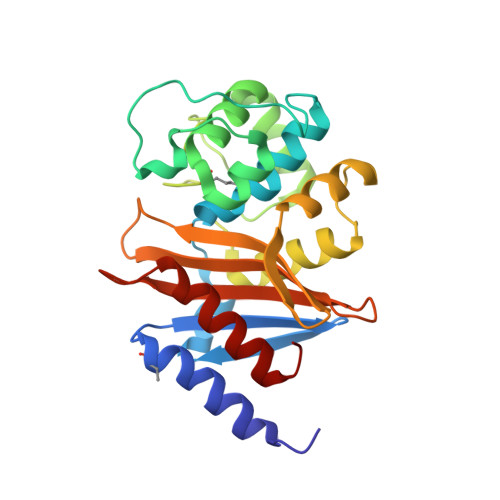Exploring the potential of boronic acids as inhibitors of OXA-24/40 beta-lactamase.
Werner, J.P., Mitchell, J.M., Taracila, M.A., Bonomo, R.A., Powers, R.A.(2017) Protein Sci 26: 515-526
- PubMed: 27997706
- DOI: https://doi.org/10.1002/pro.3100
- Primary Citation of Related Structures:
5TG4, 5TG5, 5TG6, 5TG7 - PubMed Abstract:
β-lactam antibiotics are crucial to the management of bacterial infections in the medical community. Due to overuse and misuse, clinically significant bacteria are now resistant to many commercially available antibiotics. The most widespread resistance mechanism to β-lactams is the expression of β-lactamase enzymes. To overcome β-lactamase mediated resistance, inhibitors were designed to inactivate these enzymes. However, current inhibitors (clavulanic acid, tazobactam, and sulbactam) for β-lactamases also contain the characteristic β-lactam ring, making them susceptible to resistance mechanisms employed by bacteria. This presents a critical need for novel, non-β-lactam inhibitors that can circumvent these resistance mechanisms. The carbapenem-hydrolyzing class D β-lactamases (CHDLs) are of particular concern, given that they efficiently hydrolyze potent carbapenem antibiotics. Unfortunately, these enzymes are not inhibited by clinically available β-lactamase inhibitors, nor are they effectively inhibited by the newest, non-β-lactam inhibitor, avibactam. Boronic acids are known transition state analog inhibitors of class A and C β-lactamases, and are not extensively characterized as inhibitors of class D β-lactamases. Importantly, boronic acids provide a novel way to potentially inhibit class D β-lactamases. Sixteen boronic acids were selected and tested for inhibition of the CHDL OXA-24/40. Several compounds were identified as effective inhibitors of OXA-24/40, with K i values as low as 5 μM. The X-ray crystal structures of OXA-24/40 in complex with BA3, BA4, BA8, and BA16 were determined and revealed the importance of interactions with hydrophobic residues Tyr112 and Trp115. These boronic acids serve as progenitors in optimization efforts of a novel series of inhibitors for class D β-lactamases.
Organizational Affiliation:
Department of Chemistry, Grand Valley State University, Allendale, Michigan, 49401.



















